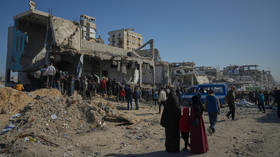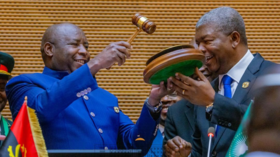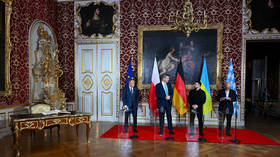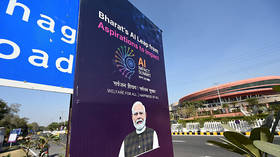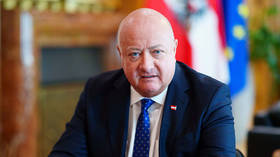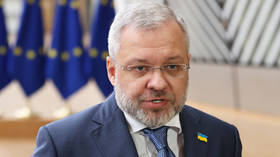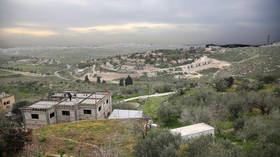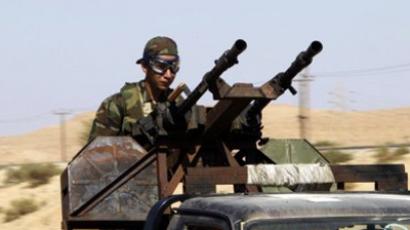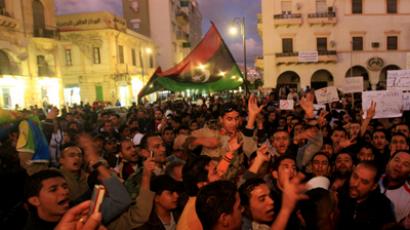Libyan arms flood ‘nightmare’ for Africa
The arms black market has been flooded with weapons from war-torn Libya, says Russia’s special envoy to Africa Mikhail Margelov, citing concerns voiced to him by local authorities.
“I recently visited Nigeria, Mali, Mauritania and Morocco, and for these four countries what is happening in the desert is a real nightmare. One of the tribal leaders said to me, what happened in Libya undermined the market. I asked what market? He said, ‘Today a Soviet or Chinese-made MANPAD [man-portable surface-to-air missile, like the American FIM-92 Stinger – RT] costs the price of two Kalashnikovs… It’s a real problem, because arms trafficking can end up somewhere in the south of Africa or somewhere in the south of Europe,” the diplomat told RT's Sophie Shevardnadze.He says the impression he gets from post-war Libya is that of a fundamentally divided country.“Last time I was in Libya in December… I spent the whole day in Tripoli, and I still have a feeling that I was in a very fragmented city. There are three or four militias hating each other, competing with each other, sometimes shooting at each other. It seems like the pieces of the Libyan political puzzle do not fit together,” he said.As for ordinary people, there is no clear understanding among them whether they are better off now than they used to be with the previous regime.“There are ‘ordinary Libyan guys’ in Benghazi, ‘ordinary Libyan guys’ in Tripoli and ‘ordinary Libyan guys’ in the desert living with their tribes. These are very different ways of living. Some people are happy – and I saw it personally in Tripoli – to openly drink moonshine, which was absolutely prohibited in the time of Muammar Gaddafi. And some people are really unhappy with that fact, because they want Sharia law everywhere in the country,” he explained.A similar fracturing of society is also an increasing problem in turbulent Syria, where the conflict, which started as a fight for political rights, is drifting towards a religious one – with quite a lot of foreign help, Margelov adds.“Syrian opposition delegations – we met at least four of them here in Moscow – were not hiding the sources of their financing. They were saying that it is coming from different Sunni states, companies and individuals. What we see in Syria today – and I really regret to say this – is increasingly a sectarian conflict between Shiites and Sunnis. Bashar al’Assad belongs to the Assad family, which is a Shia Alawi, while the majority of the population in Syria are Sunnis. Unfortunately it [the sectarian split – RT] is one of the biggest problems of the Middle East today,” he said.


